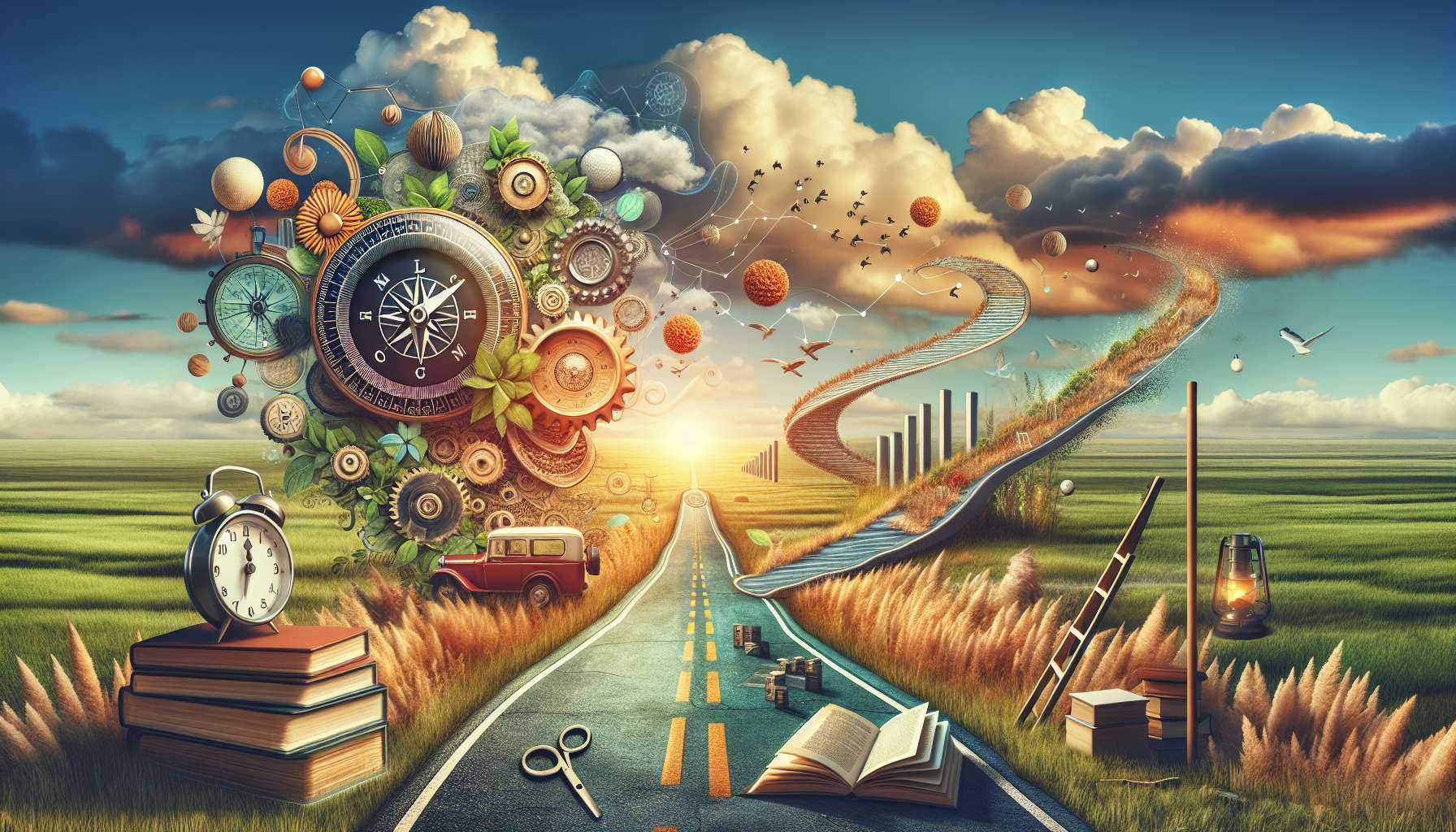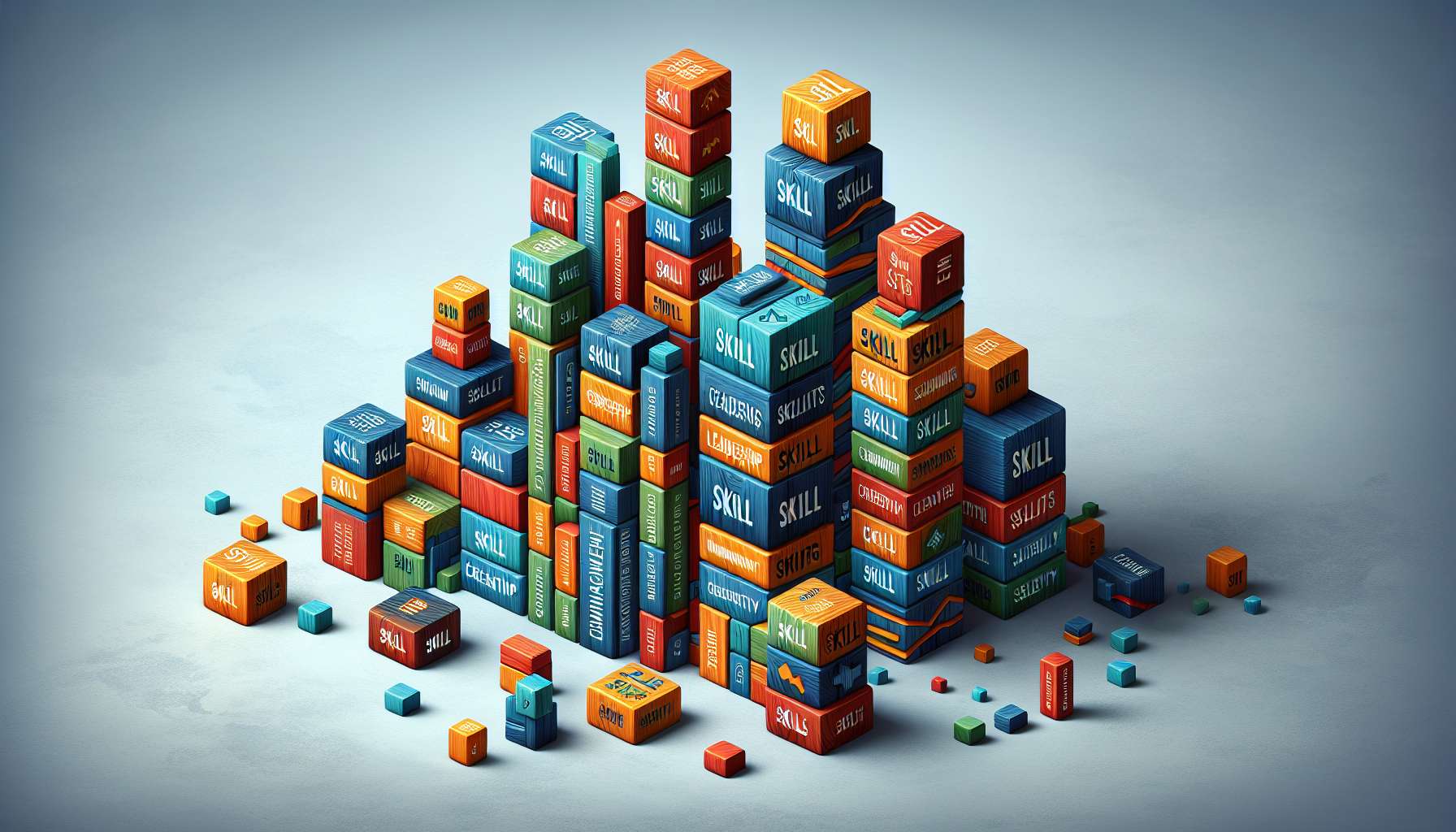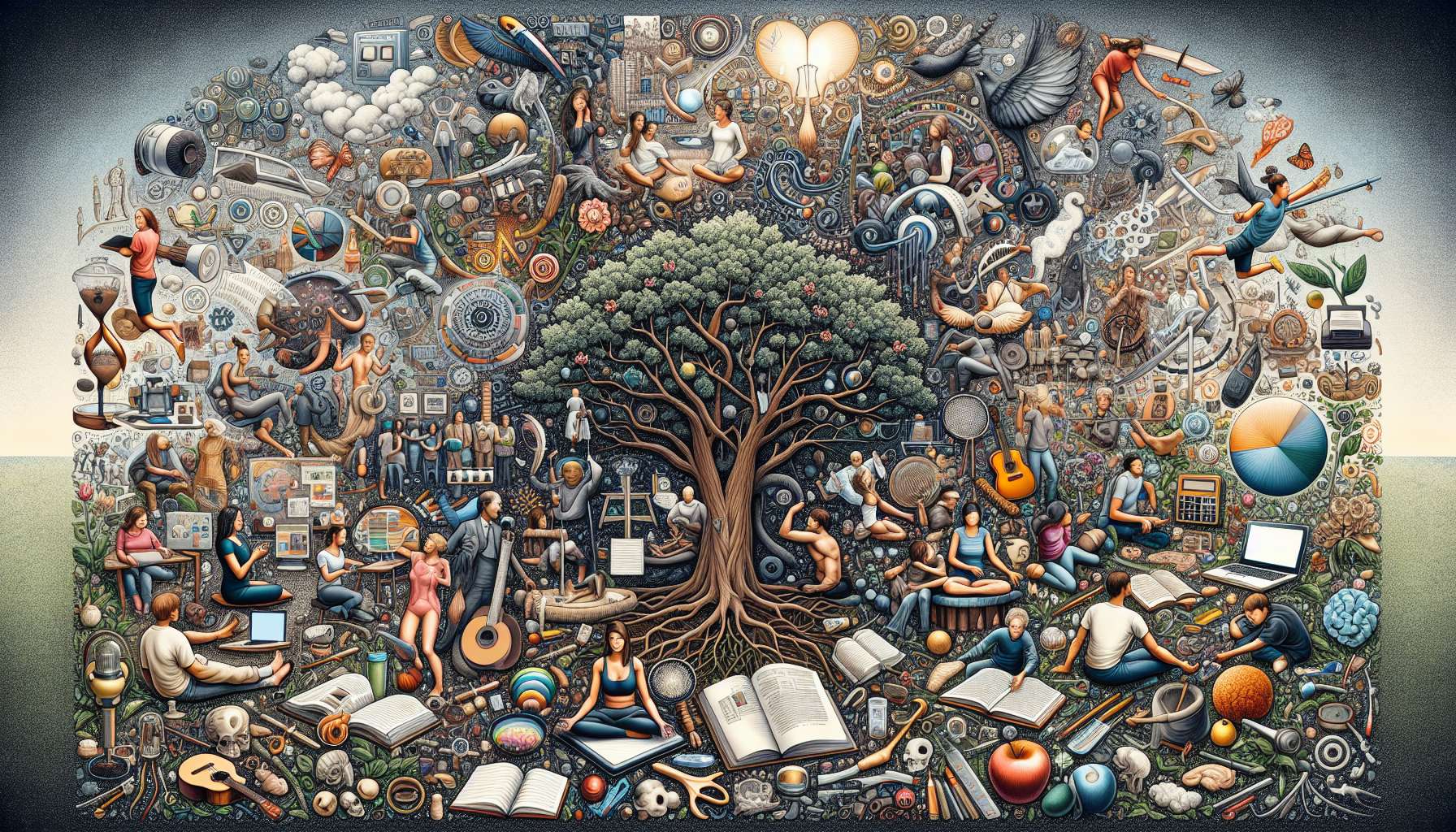Unlocking the Power of Self-Development Essentials
Self-development is a journey that each of us embarks on at some point in our lives. It is the conscious pursuit of personal growth, improvement, and fulfillment. From enhancing our skills and expanding our knowledge to cultivating positive habits and fostering a growth mindset, self-development encompasses a wide array of essential practices that can empower us to become the best version of ourselves.
But what exactly are the key essentials of self-development, and how can they impact our lives? In this comprehensive guide, we will delve deep into the core elements that constitute self-development essentials, exploring their significance, practical applications, and potential benefits. Join us on this enlightening journey as we uncover the secrets to unlocking your full potential and living a more fulfilling life.
The Power of Goal Setting
One of the foundational pillars of self-development is goal setting. Setting specific, measurable, achievable, relevant, and time-bound (SMART) goals provides a roadmap for personal growth and progress. Whether it’s advancing in your career, improving your health and fitness, or nurturing relationships, having clear goals can give you a sense of direction and purpose.
For example, if your goal is to start a business, you can break it down into smaller milestones such as conducting market research, developing a business plan, and securing funding. By setting incremental goals, you can track your progress, stay motivated, and make adjustments along the way. This proactive approach to goal setting not only enhances your productivity but also cultivates a sense of accomplishment and self-efficacy.
Cultivating a Growth Mindset
Another essential aspect of self-development is cultivating a growth mindset. Coined by psychologist Carol Dweck, a growth mindset is the belief that our abilities and intelligence can be developed through effort, perseverance, and learning. Embracing a growth mindset allows us to view challenges as opportunities for growth, setbacks as learning experiences, and failure as a stepping stone to success.
For instance, instead of viewing a rejection as a reflection of your abilities, a growth mindset encourages you to see it as a temporary setback that can be overcome with dedication and resilience. By reframing your thoughts and beliefs, you can unleash your full potential, enhance your problem-solving skills, and cultivate a sense of resilience in the face of adversity.
The Importance of Self-Care
Self-care is an essential component of self-development that often gets overlooked in our fast-paced and demanding lives. Practicing self-care involves taking deliberate actions to nurture your physical, emotional, and mental well-being. This can include activities such as exercise, meditation, journaling, spending time in nature, and seeking therapy or counseling.
Self-care is not just about pampering yourself; it is about prioritizing your health and happiness. When you take care of yourself, you are better equipped to handle life’s challenges, manage stress effectively, and maintain a positive outlook. By making self-care a non-negotiable part of your routine, you can enhance your overall quality of life and build resilience against burnout and exhaustion.
Continuous Learning and Skill Development
Learning is a lifelong journey that plays a crucial role in self-development. Whether it’s acquiring new skills, gaining knowledge in a particular field, or pursuing personal interests, continuous learning expands your horizons, challenges your assumptions, and fosters personal growth. With the advent of online learning platforms and resources, acquiring new skills and knowledge has never been more accessible.
For example, if you have always wanted to learn a new language, you can enroll in an online course, join a language exchange program, or use language learning apps to practice. By investing in your personal and professional development through learning, you can stay relevant in a rapidly changing world, enhance your problem-solving abilities, and boost your confidence and self-esteem.
Building Resilience and Emotional Intelligence
Resilience and emotional intelligence are essential qualities that can empower you to navigate life’s challenges with grace and composure. Resilience is the ability to bounce back from setbacks, adapt to change, and thrive in the face of adversity. Emotional intelligence, on the other hand, is the capacity to recognize, understand, and manage your emotions and those of others.
By developing resilience, you can cultivate a sense of optimism, perseverance, and grit that will enable you to overcome obstacles and setbacks. Emotional intelligence, on the other hand, allows you to build stronger relationships, communicate effectively, and navigate conflicts and disagreements with empathy and understanding. Together, resilience and emotional intelligence form a powerful combination that can enhance your personal and professional success.
Creating a Supportive Environment
Building a supportive environment is essential for sustaining your self-development journey. Surrounding yourself with positive influences, mentors, and like-minded individuals can provide the encouragement, guidance, and accountability you need to stay motivated and focused on your goals. Additionally, creating a conducive physical environment that promotes productivity and well-being can enhance your overall sense of satisfaction and fulfillment.
For example, if you are working on a creative project, setting up a dedicated workspace with inspiring decor, natural light, and minimal distractions can boost your creativity and focus. Similarly, joining a mastermind group, attending workshops, or seeking mentorship can provide you with valuable insights, feedback, and support from individuals who share your aspirations and values. By curating a supportive environment, you can accelerate your personal growth and achieve your self-development goals more effectively.
Practicing Mindfulness and Gratitude
Mindfulness and gratitude are powerful practices that can enhance your overall well-being and self-awareness. Mindfulness involves being fully present in the moment, observing your thoughts and emotions without judgment, and cultivating a sense of awareness and acceptance. Gratitude, on the other hand, entails acknowledging and appreciating the positive aspects of your life, expressing thanks for the blessings and opportunities that come your way.
By incorporating mindfulness and gratitude into your daily routine, you can reduce stress, anxiety, and rumination, enhance your emotional resilience, and improve your relationships and overall sense of well-being. Practicing mindfulness can sharpen your focus, increase your productivity, and foster a deep sense of inner peace and contentment. Similarly, cultivating gratitude can shift your perspective from scarcity to abundance, cultivate a sense of optimism and joy, and strengthen your social connections and support networks.
Expert Opinions
According to renowned psychologist and author Dr. Jordan Peterson, self-development is the key to unlocking your full potential and achieving personal fulfillment. In his book “12 Rules for Life: An Antidote to Chaos,” Dr. Peterson emphasizes the importance of taking responsibility for your life, setting meaningful goals, and cultivating virtues such as courage, honesty, and integrity.
Similarly, entrepreneur and motivational speaker Tony Robbins believes that self-development is the key to creating lasting change and achieving success in all areas of life. In his seminars and books, Robbins advocates for taking massive action, mastering your mindset, and developing a sense of purpose and passion that drives you to reach your goals.
Common Misconceptions
One common misconception about self-development is that it is a one-size-fits-all approach that guarantees instant success and happiness. In reality, self-development is a personalized journey that requires dedication, effort, and self-awareness. What works for one person may not work for another, and it is essential to experiment, adapt, and refine your self-development strategies based on your unique goals and values.
Another misconception is that self-development is a solitary endeavor that requires isolating yourself from others. On the contrary, self-development thrives in a supportive and collaborative environment where you can learn from others, seek feedback and guidance, and share your experiences and insights with like-minded individuals. Building a strong support network and seeking mentorship can enhance your self-development journey and accelerate your progress towards your goals.
Comparative Analysis
When comparing self-development to other forms of personal growth such as self-help, therapy, and coaching, it is essential to understand the distinct differences and benefits of each approach. While self-help books and resources provide valuable insights and tools for personal growth, they may lack the personalized guidance and support that therapy and coaching offer.
Therapy focuses on healing emotional wounds, resolving past traumas, and gaining insight into your thoughts and behaviors. Coaching, on the other hand, is action-oriented, goal-focused, and designed to help you achieve specific outcomes and overcome obstacles. Self-development, on the other hand, encompasses a holistic approach to personal growth that integrates self-awareness, skill development, goal setting, and mindset shifts to empower you to reach your full potential and live a more fulfilling life.
Conclusion
To wrap things up, self-development essentials are the fundamental building blocks that can empower you to unlock your full potential, cultivate resilience, and achieve personal fulfillment. By setting meaningful goals, cultivating a growth mindset, practicing self-care, continuous learning, and skill development, building resilience and emotional intelligence, creating a supportive environment, practicing mindfulness, and gratitude, you can embark on a transformative journey of self-discovery and growth.
Remember that self-development is a lifelong journey that requires dedication, effort, and self-awareness. By embracing the essential practices and principles of self-development, you can create a life that is aligned with your values, passions, and aspirations. So, what are you waiting for? Start your self-development journey today and unlock the limitless potential that lies within you.




